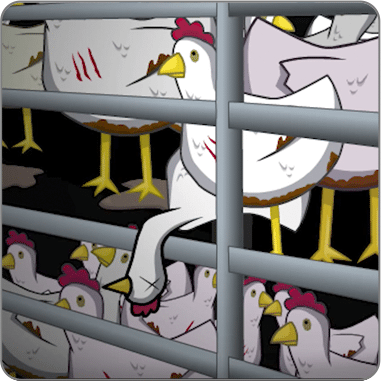
Organic
“Organic is something we can all partake of and benefit from. When we demand organic, we are demanding poison-free food. We are demanding clean air. We are demanding pure, fresh water. We are demanding soil that is free to do its job and seeds that are free of toxins. We are demanding that our children be protected from harm. We all need to bite the bullet and do what needs to be done—buy organic whenever we can, insist on organic, fight for organic and work to make it the norm. We must make organic the conventional choice and not the exception available only to the rich and educated.”
~ Maria Rodale, Organic Manifesto: How Organic Farming Can Heal Our Planet, Feed the World, and Keep Us Safe
Every time you make a purchase, you cast a vote with your dollars – a vote that has the power to lessen impact on people and planet. All it takes is becoming informed and shifting your habits, which can be as simple as buying a piece of certified organic produce.
But what exactly does the term certified organic mean, and why should you care? At the most basic level, it means that a product was produced without harm to soil, water, air, humans and all species –– promoting ecological health and biodiversity. Certified organic goods must meet specific production requirements as outlined by national organic programs and independent certifiers.
Take an apple for example. The average conventionally grown apple has about 47 pesticide residues on its surface, many of which are known or probable human carcinogens (substances capable of causing cancer in living tissue). When you opt for organic, however, whether it’s in the form of food or textiles, you’re actually reducing your exposure to harmful pesticide residues. Check out what’s on your favorite foods at What’s on My Food .
Organic cotton as another example. A life cycle analysis of organic cotton found that energy demand was 62% lower than that of conventional cotton. Moreover, the total global warming potential of organic cotton was 46% lower than that of conventional cotton.
Green
Think
Product labels are really important. They were created to help you better understand the ethics and intention about what you buy, consume, and put into and onto your body. But with all of the hype out there, sometimes it’s hard to decipher if the label is really telling the true story. If you understand what labels mean, then you’ll also learn a lot about a company’s ethics, integrity, and values. Having a USDA organic certification holds a third party accountable for ensuring that ethical business practices are being adhered to and that there is oversight and enforcement.
Challenge
- Find the most common organic certification in your country.
- What are two requirements that producers must meet to be certified organic?
- Which one do you think is most important and why?
Greener
Think
Companies often use images like rolling green pastures, bright blue skies, vivid leaves, or words like “natural” or “farm fresh” to create the illusion that their products are eco-friendly, even when they’re not. This practice is referred to as “greenwashing”.
Challenge
- Stop by any grocery or convenience store near your home and walk the aisles. (Check out aisles besides just food – the term “organic” covers a wide variety of products.)
- Take photos of 3 products (1 household item, 1 food item, and 1 body product) that are seemingly “natural” based on their packaging, but that you believe could be using greenwashing tactics. (Be sure to take a picture of the ingredient list on each package.)
- Take a minute to consider what you think is misleading about the product. Let’s start to unpack the complexity of greenwashing tactics.
- Look at the ingredient list on each of these products.
- Identify 3 ingredients that you are unfamiliar with or can’t pronounce.
- Conduct some research to see if these ingredients have any known adverse effects on human or environmental health.
- Based on your research, do you think it’s a greenwashed product? If yes, why? If no, why not? What changed your mind?
- Select one product you researched and find its organic, non-GMO alternative. Look at the two products in a side-by-side comparison, snap a picture and share it with us @TurningGreenOrg so we can see how you are transitioning from #ConventionalToConscious
Greenest
Think
What have you discovered about organic products that you feel the world should know? It’s time to spread the word and teach it forward!
Challenge
Create an informative, thoughtful, and engaging piece of media about the benefits of certified organic over conventional. Feel free to include favorite brands, labels, etc. Choose any format that allows your unique voice to emerge. The possibilities are endless! Be brilliant. Have fun + don’t forget to share it with us by tagging @TurningGreenOrg and using the hashtag #ConventionalToConscious.



